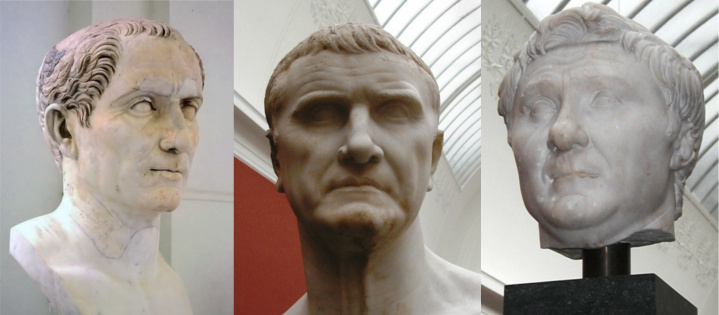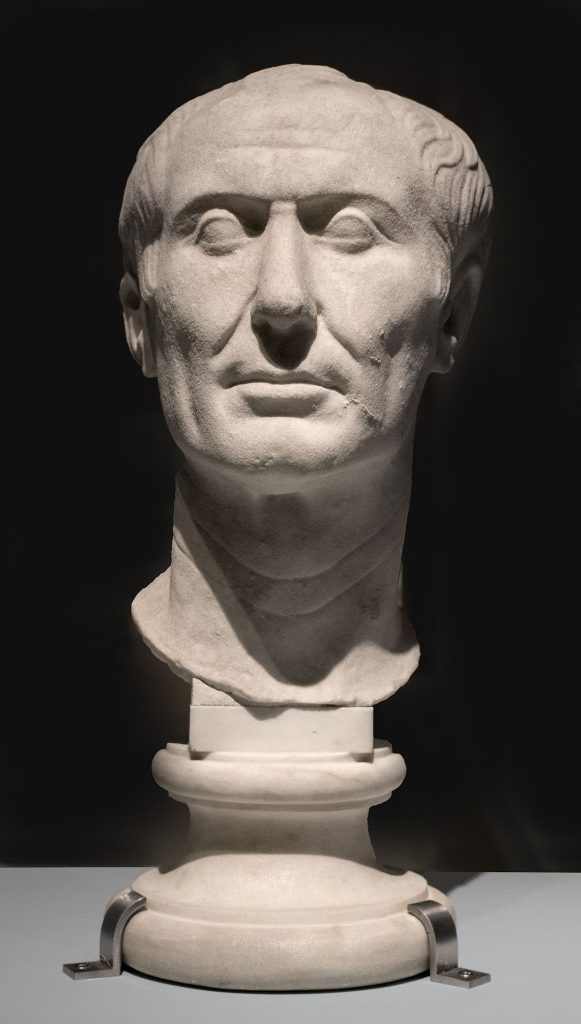
The First Triumvirate, an informal alliance agreed in 60 BC, was an agreement between the three powerful men of the late Roman Republic, Gauius Julius Caesar, Gnaeius Pompeius Magnus and Marcus Licinius Crassus. The three men didn’t have equal political beliefs and values. All of them entered the alliance for their own personal interests.
Tricaranus against the Senate
Everything started with the conflict between the two political factions of the Late Roman Republic – the Populares and the Optimates. Populares were supported by the plebeians and the aristocracy gave its support to the Optimates. After the Catilina’s conspiracy, the power of the Senate and the aristocracy grew strong, to the point the Populares started to question their authority, especially in the matters of a fair trial. The Roman Republic was a type of state whose constitution prevented a man from rising above the others. Although Caesar, Pompeius and Crassus had different beliefs, they had a common goal – to stop the political dominance of the Senate. Therefore, they entered into the secret alliance and promised to help each other. In 60 BC, Caesar came back from Hispania where he was a governor, and after entering the city and presenting his candidacy for consulship formed a strong alliance with Pompey and Crassus. On that occasion, Marcus Terentius Varro, the writer, called the three most powerful men Tricaranus which means ”the three-headed monster”.
When Caesar United the Rivals
All three men had the support of each other and that support was the strongest pillar of their power. Pompey was a successful military leader and that was his power. He became especially popular after his African Campaign in 81 BC. He was also very successful in Sulla’s second civil war, Sicilian Campaign, Sertorian War, the Third Serville War, and the Third Mitridatic War. The war against piracy on the Mediterranean Sea gave Pompey control over the whole sea and the mainland within 50 miles of the coast. Therefore the political power of Pompey is based on his popularity as a military commander. Pompey was a political outsider who questioned the supremacy of the Senate. Crassus, after he amassed his wealth, went into a political campaign against Pompey. Therefore, he needed Caesar. But, when Caesar returned, using his own diplomatic skill, managed to form one of the most powerful alliances in ancient history – The First Triumvirate.

Disastrous Campaign That Ruined Everything
Thanks to this alliance, Caesar got a command over Gaul and Illyria for five years. So he started his conquest of Gaul. Pompey received Hispania and Crassus got Syria. In 54 BC, Caesar was still on his Gaul Campaign and Crassus led a war against Parthians. Only Pompey was left in Rome. Except by Cato, who was his primary political opponent, his power was jeopardized when Julia, his wife and the daughter of Caesar, died giving birth to Pompey’s daughter who also died a few days after being born. That was the end of good relations with Pompey. The last nail in the coffin was Crassus’ campaign against Parthians that ended disastrously, with Crassus’ death at the end. The initial compromise now turned into envy. Caesar and Pompey couldn’t stand the fact that one of them may have more power than the other. These hostilities will grow in the following years and will culminate with the Great Roman Civil War.
Ivana Tucak
3 thoughts on “From Compromise to Envy: The Rise and Fall of the First Triumvirate”